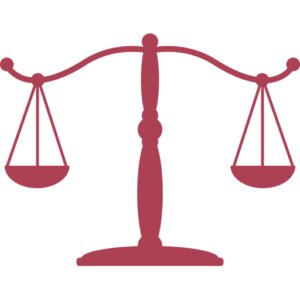Best Constitutional Law Lawyers in Netherlands
Share your needs with us, get contacted by law firms.
Free. Takes 2 min.
Or refine your search by selecting a city:
List of the best lawyers in Netherlands
About Constitutional Law in Netherlands
Constitutional Law in the Netherlands governs the framework within which the Dutch government operates. It outlines the rights and duties of the state and its citizens, establishing fundamental legal principles that guide all legislative processes. The Dutch Constitution (Grondwet) is the supreme legal document, and it includes key provisions on democracy, the protection of civil rights, the functioning of the parliament (Staten-Generaal), and the judiciary.
Why You May Need a Lawyer
Individuals may seek legal help in Constitutional Law for various reasons. Situations may include challenging the constitutionality of legislation, defending one's civil rights, or facing unconstitutional treatment by authorities. Lawyers specializing in this field can also assist in advocacy for policy changes, interpreting complex legal language, and advising on legal implications of government actions.
Local Laws Overview
The Netherlands follows a parliamentary democracy facilitated by a constitutional monarchy. Key aspects include the separation of powers, rule of law, and protection of fundamental freedoms. The Constitution covers essential rights such as freedom of speech, religion, privacy, and the press while maintaining checks and balances between the executive, legislative, and judicial branches.
Frequently Asked Questions
What is the role of the Dutch Constitution?
The Dutch Constitution sets out the fundamental legal framework of the Netherlands, detailing the rights of citizens and the organization of the country’s governance system.
Can laws in the Netherlands be declared unconstitutional?
Unlike some countries, Dutch courts generally do not have the power to review the constitutionality of Acts of Parliament. However, international treaties ratified by the Netherlands are a component of the Dutch legal system and can be used to challenge national laws that conflict with them.
What rights are protected under the Dutch Constitution?
Rights protected include freedom of expression, freedom of religion, the right to privacy, and the prohibition of discrimination, among others.
How does the separation of powers work in the Netherlands?
The separation of powers is maintained through clear divisions between the executive (government), the legislative (parliament), and the judiciary (courts), each functioning independently to prevent abuse of power.
Is the freedom of press guaranteed in the Netherlands?
Yes, freedom of the press is guaranteed under Article 7 of the Dutch Constitution, which allows for a free and independent media.
Are there limits to freedom of speech in the Netherlands?
Although freedom of speech is protected, it is subject to restrictions aimed at preventing hate speech, defamation, and incitement to violence.
What is the role of the Council of State in the Netherlands?
The Council of State advises the government on legislation and governance issues and can also resolve administrative disputes.
How can citizens participate in government decision-making?
Citizens can participate through voting, holding public office, and engaging in consultative processes such as public consultations on legislative proposals.
What is the importance of international law in the Dutch legal system?
International law is directly applicable in the Dutch legal system, meaning treaties ratified by the Netherlands can have a binding effect domestically.
What happens if a Dutch law conflicts with international treaties?
If a Dutch law conflicts with an international treaty, the provisions of the treaty prevail, and the law can be set aside in favor of the treaty.
Additional Resources
For further information, you may consult organizations such as the Dutch Ministry of the Interior and Kingdom Relations, the Netherlands Institute for Human Rights, and the University of Leiden’s Faculty of Law. These institutions provide valuable resources and can guide you in navigating Constitutional Law in the Netherlands.
Next Steps
If you require legal assistance in Constitutional Law, consider consulting with a specialized attorney. Preparing relevant documentation and understanding your specific needs will be crucial during initial consultations. You can access legal directories, professional associations, or reach out to local law societies to find experienced constitutional lawyers.
Lawzana helps you find the best lawyers and law firms in Netherlands through a curated and pre-screened list of qualified legal professionals. Our platform offers rankings and detailed profiles of attorneys and law firms, allowing you to compare based on practice areas, including Constitutional Law, experience, and client feedback.
Each profile includes a description of the firm's areas of practice, client reviews, team members and partners, year of establishment, spoken languages, office locations, contact information, social media presence, and any published articles or resources. Most firms on our platform speak English and are experienced in both local and international legal matters.
Get a quote from top-rated law firms in Netherlands — quickly, securely, and without unnecessary hassle.
Disclaimer:
The information provided on this page is for general informational purposes only and does not constitute legal advice. While we strive to ensure the accuracy and relevance of the content, legal information may change over time, and interpretations of the law can vary. You should always consult with a qualified legal professional for advice specific to your situation.
We disclaim all liability for actions taken or not taken based on the content of this page. If you believe any information is incorrect or outdated, please contact us, and we will review and update it where appropriate.
Browse constitutional law law firms by city in Netherlands
Refine your search by selecting a city.














